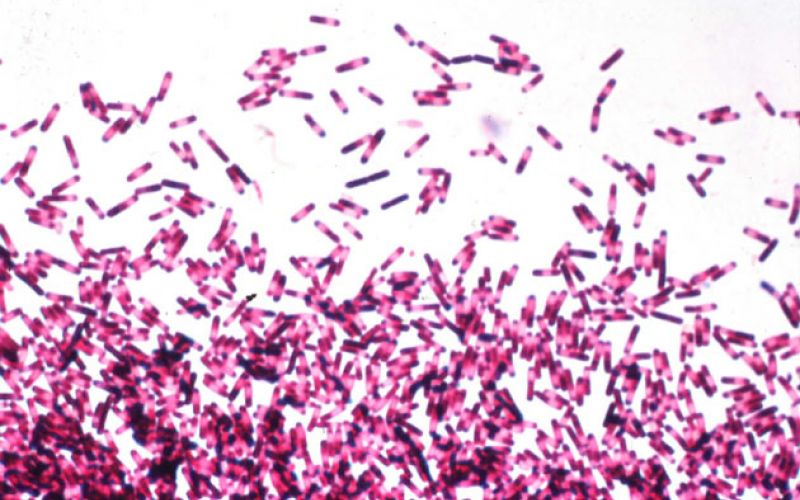Other Categories
 Dr. Gary Hoffman answers questions from the Peggy Foundation’s Advocates Council.
Dr. Gary Hoffman answers questions from the Peggy Foundation’s Advocates Council.
This post was written by Gary H. Hoffman, MD, a colon and rectal surgeon with more than 35 years of experience in Beverly Hills, CA. Dr. Hoffman is the Clinical Chief of the Division of Colon and Rectal Surgery at Cedars Sinai Medical Center He has written extensively about Clostridium difficile, FMT, and their treatment options. Dr. Hoffman is board certified, you can learn more about him at lacolon.com.
Why do some doctors refuse C. diff testing on formed stool?
The labs who perform PCR testing regulate the rules about the consistency of a properly formed sample. Formed or hard stools can result in a false positive PCR test. I see patients each year who test positive for C. difficile without the traditional symptoms. While most have either diarrhea or abdominal cramping, sometimes the only symptoms are fever and high white blood cell count. If a patient is producing formed stools but I suspect C. diff, I can order other types of testing or can request that the lab test the sample anyway. Many primary care providers who are not as familiar with C. difficile will not request that the lab test for the toxin when the patient is producing formed stools, however.
If patients are showing symptoms, can they be treated for C. diff without testing, or when a test shows that they are negative for C. diff?
With EIA testing, false negatives were common. This is one reason I always recommend opting for the more sensitive PCR testing. PCR testing very rarely produces a false negative result.
If you receive a negative PCR result, you are unlikely to have a known C. diff strain. Mutation is always possible, but there are other, more likely reasons behind your symptoms. Your doctor should also test your stool sample for ova, parasites and other pathogens that can cause similar symptoms. Because C. diff damaged your gut, you may be more susceptible to these infections.
How would you respond to a patient who failed their first round of antibiotics, or one who refused antibiotics at all, but demanded FMT right away?
In the vast majority of infections, C. diff responds favorably to a ten-day course of antibiotics. Symptoms lessen within a few days, although it may take some time for the digestive system to fully recover. For some patients – a growing number, in fact – their C. diff infections demonstrate a resistance to the antibiotics.
I almost always recommend that patients try the first line treatment, but I am open to discussing all possible treatment options with patients. I discuss the risks and benefits of each option.
How long after treatment should a person wait to be retested for C. diff? What tests should they ask for?
PCR testing is incredibly sensitive, so patients may continue to test positive for almost a month even after symptoms disappear. Most labs will only repeat a PCR test at least seven days after a negative result or 14 to 28 days following a positive result.
If I believe a patient may be suffering from C. diff despite a negative test, I usually recommend the option of a colonoscopy to rule out other causes. In some cases, I will prescribe a round of metronidazole (flagyl) or oral vancomycin. However, I am a strong supporter of antibiotic stewardship programs and try to minimize the use of antibiotics without clinical confirmation of an infection. In the United States, doctors are currently limited to using FMT only in cases of confirmed C. diff.
Can formed stool from sick patients be tested for C. diff?
Typically, labs will only test watery or soft stool samples for Clostridium difficile. Some semi-formed samples that take the form of the specimen container are also allowable. Formed or hard stool samples are usually refused by the lab when submitted for C. diff testing. We can request to override this policy in special circumstances, but the chances of false negative results may increase.
How do you test the normal stool of healthy FMT donors for C. diff?
Potential FMT donors must undergo both serum and stool testing. This includes a stool test for C. difficile toxins, preferably by polymerase chain reaction (PCR) testing. Ideally, a healthy donor will have regular bowel movements. The stool itself will be firm and formed, but not hard or dry.
Testing the potential donor for C. difficile and other nefarious toxins, parasites and infections is key in a successful transplant. Without this testing, the FMT can lead to additional issues in the recipient’s fragile digestive tract. Only after the donor has passed the tests do we collect a sample for transplant.
When will labs be able to do “stat” testing instead of batch testing?
Stat testing requires the lab to stop processing other specimens to focus on testing the stool sample. This type of testing is usually reserved for life or death situations, when immediate treatment is critical for the patient’s survival or recovery. While immediate analysis and reporting of results is a best-case scenario, it is not feasible in all situations. There are simply not enough laboratory technicians to allow for immediate testing of each sample.
It is much easier and more cost effective for the labs to put the samples aside for testing with the next routine batch. However, this relies on proper handling and storage. Even if a lab cannot dedicate all its resources to immediate testing of a sample, they must uphold the highest standards to ensure samples are not cross-contaminated or otherwise jeopardized.
Why do so many people test negative for C. diff but still present the same symptoms as when they were sick with C. diff? Could C. diff be mutating?
Unfortunately, it is not uncommon for those with a previous C. diff infection to experience symptomatic episodes or even a full-blown recurrence. There are several reasons why you may test negative, despite a recurrence.
Often, clinics and hospitals rely on enzyme immunoassay (EIA) testing to diagnose C. diff. This test is one of the fastest and cheapest, but it has a high rate of false negatives. For this reason, many doctors submit three samples for testing. Some people do not receive a positive until the third test, and others never do. A better option is to submit a watery or soft stool sample for PCR testing. Research shows that PCR has a sensitivity of near 100 percent. EIA and other types of tests are not as sensitive, and can be repeated sooner. It is important to remember, though, that they are less reliable.
One way you can get quick, accurate results is to ask your doctor to order a test looking for glutamate dehydrogenase (GDH). C. difficile produces this antigen in high quantity. It will not identify what toxin is in your system, but it is very accurate in determining if there is C. diff present. If you receive a positive result on this test, you should ask for a PCR test to confirm and identify the specific toxins present. This type of test is much more expensive, which is why I sometimes use the GDH test first.
Do patients always need antibiotics before surgery?
When taken before a procedure, antibiotics may prevent bacteria from being released into the bloodstream. However, these antibiotics are not always necessary. For moderately healthy individuals who are not at high risk for infection and could likely fight off a minor infection, these prophylactic antibiotics may be unnecessary. Discuss your concern with your doctor before taking them.
Is there anything a patient should discuss with their surgeon before a procedure to help prevent C. diff infections?
Antibiotic stewardship plays a key role in reducing the number of C. diff infections following surgical procedures or hospitalizations. When antibiotics are over-prescribed or poorly targeted, they can lead to C. diff as well as other serious health complications. One of the best things you can do to reduce your risk is to talk to your doctor about your concerns. Ask them about the clinic or hospital’s antibiotic stewardship program, and what safeguards are in place to prevent unnecessary of these drugs. Ensure your health care team understands that you want to avoid any unnecessary antibiotics, and that this is noted in your medical records.
Resources:
https://www.ncbi.nlm.nih.gov/pmc/articles/PMC3719497/
https://www.gastro.org/research/Joint_Society_FMT_Guidance.pdf
https://labtestsonline.org/understanding/analytes/cdiff/tab/test/
http://jcm.asm.org/content/41/2/531.full




I feel like I am dying, I have had c diff and I know I still have it but hospitals won’t do anything and I am 26 with bowel incontinence and I am a nurse so what can I do. I been in and out of hospitals since April last year with cdiff and many types of infections I just cannot kick being sick. It makes me wanna go honestly
Are you feeling any better Katelin? I can relate, this is a very depressing thing that no one seems to have much knowledge of in most doctors offices and hospitals. Ask for pcr test or keep looking until you find a doc that will give you a course of vanco if you think you have a false negative. Getting in with a gastro is a good idea to find out if it’s something else similar like microscopic colitis.
I developed jaundice, ERCP and gall bladder surgery done end of April, developed fever, started on amox clav. Third week post procedure I started Abdo pain and urgency to go washroom with semi formed stool . Blood work results showed liver enzyme trending up again. Admitted in hospital. Having c-diff now started vanco yesterday. When I can go home as quick/safe as possible